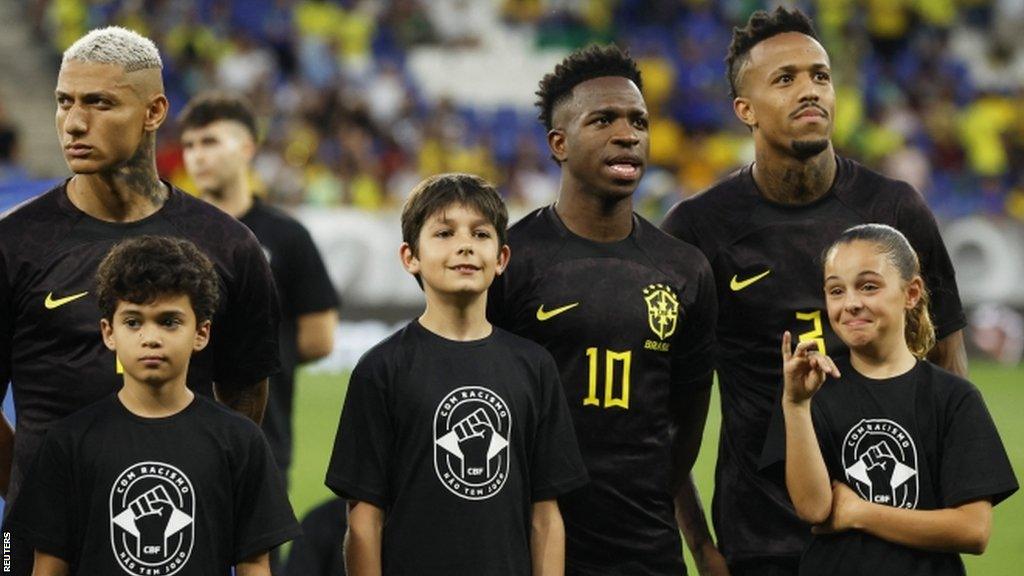Vinicius Jr: Rio de Janeiro government names anti-racism law after Real Madrid forward
- Published

Vinicius Jr (centre) and his Brazil team-mates wore black kits for the first half of last month's friendly against Guinea while mascots wore t-shirts that read 'with racism there is no game'
The Rio de Janeiro government has named an anti-racism law in honour of Real Madrid forward Vinicius Jr.
The 'Vini Jr law', unanimously approved by the Rio government in June, will see sporting events stopped or suspended in the event of racist conduct.
Vinicius, 22, was racially abused several times last season.
"Today is a very special day and I hope my family is very proud," he said at a ceremony at the Maracana Stadium, where he made his senior debut for Flamengo.
"I am very young and I didn't expect that I would be receiving this tribute."
Local media said the law was inspired by Vinicius' response to being racially abused during a game at Valencia in May, which was stopped as the player pointed out those responsible.
The law includes protocol on how to process complaints of racism and mandatory educational campaigns.
Vinicius also received awards from Rio's legislative assembly and city council and his footprints were added to the stadium's walk of fame, beside those of Brazilian greats such as Pele, Garrincha and Ronaldo.
Rio's secretary for sports, Rafael Picciani, said it was an honour to pay tribute to "an idol of Brazilian football, born and raised in Rio de Janeiro".
Vinicius has been asked to lead a special Fifa anti-racism committee made up of players.
His most recent games were in post-season friendlies for Brazil against Guinea and Senegal, which were organised as part of an anti-racism campaign, which will continue with a friendly against Spain at Real's Bernabeu stadium next March.
"Sometimes I wonder if I deserve so much," added Vinicius, who moved from Flamengo to Real in 2018.
"I didn't expect so many awards and to receive all this affection at the Maracana, where I attended and played so many Flamengo matches."

Our coverage of your Premier League club is bigger and better than ever before - follow your team and sign up for notifications in the BBC Sport app to make sure you never miss a moment
